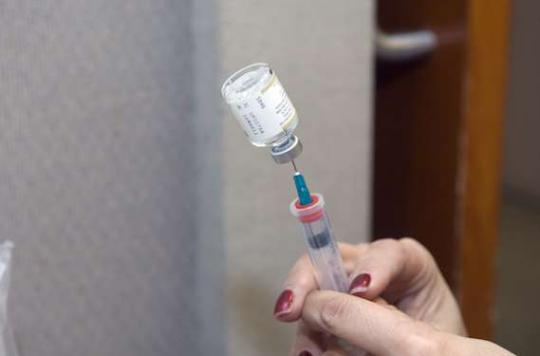The results of the large papillomavirus vaccination study are reassuring. However, they should not lead to the need for regular smear screening.

This is the largest study ever to examine the effects of vaccination against human papillomavirus (HPV) infections, which prevents the risk of cervical cancer. Jointly carried out by the National Medicines Safety Agency and Health Insurance, the report published on Monday looked at the case of 2.2 million young girls aged 13 to 16 followed for four years. He confirms that neither the Gardasil vaccine nor the Cervarix vaccine, used against different forms of the virus, cause a higher incidence of autoimmune diseases.
This fear has long led many young women to refuse vaccination against cervical cancer, which was recommended by the High Council of Public Security. In France, this cancer is the 11th in terms of incidence in women, with nearly 3,000 new cases diagnosed each year, but the vaccine coverage against the papillomavirus is estimated at only 17%.
The always necessary smear
The vaccine is recommended for young girls aged 11 to 14, before the start of their sexual life, but catch-up is possible until the age of 23. Women over 25, who are not vaccinated, should have a smear test every three years, as this is the only effective way to find cancer.
But for all those who have been vaccinated, the smear is also necessary, because the vaccination is only effective against cancer in 80% of cases., as recently pointed out in a study published in the Journal of the National Cancer Institute.
In addition, the effects and degree of effectiveness of vaccines over the long term are still poorly understood. These were only introduced in France in 2006, and this lack of hindsight makes it necessary to continue to offer women regular screening, to ensure the absence of precancerous lesions or infection in the skin. ‘uterus.
.

















